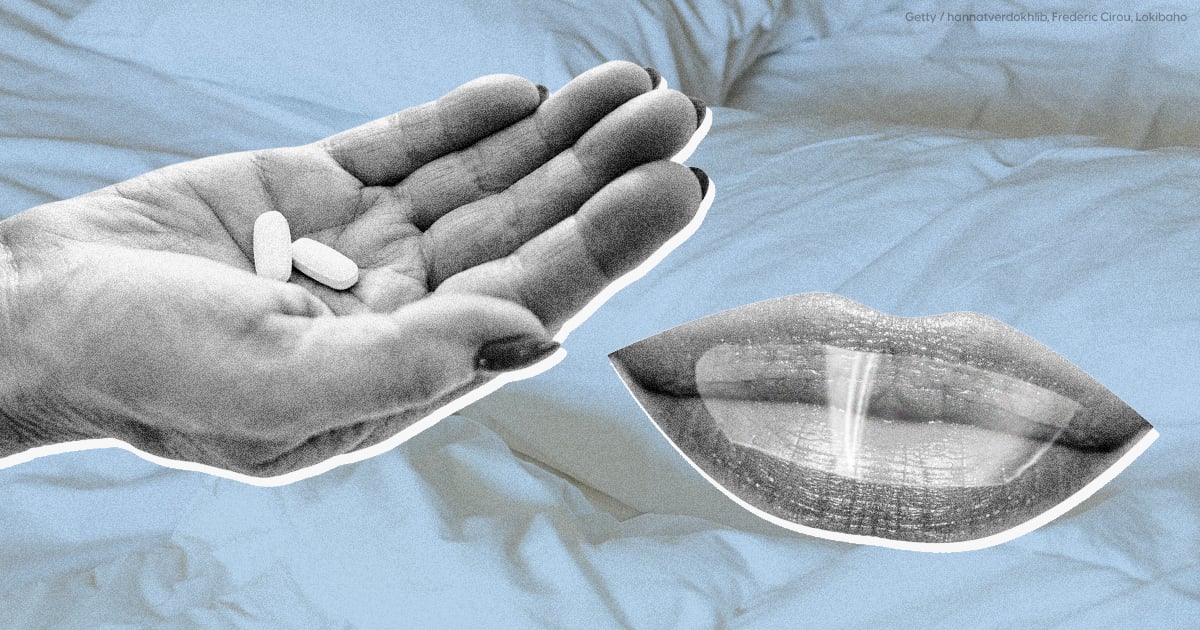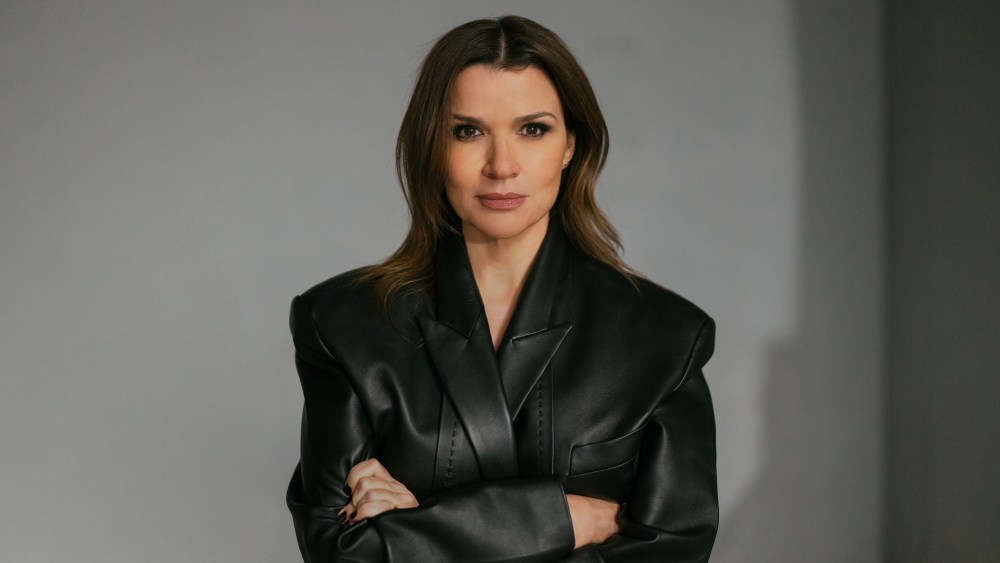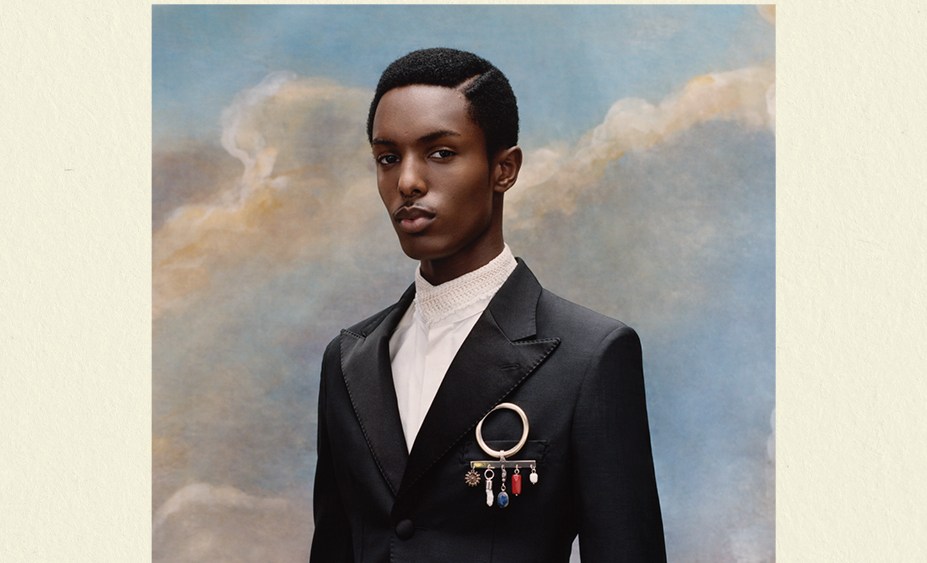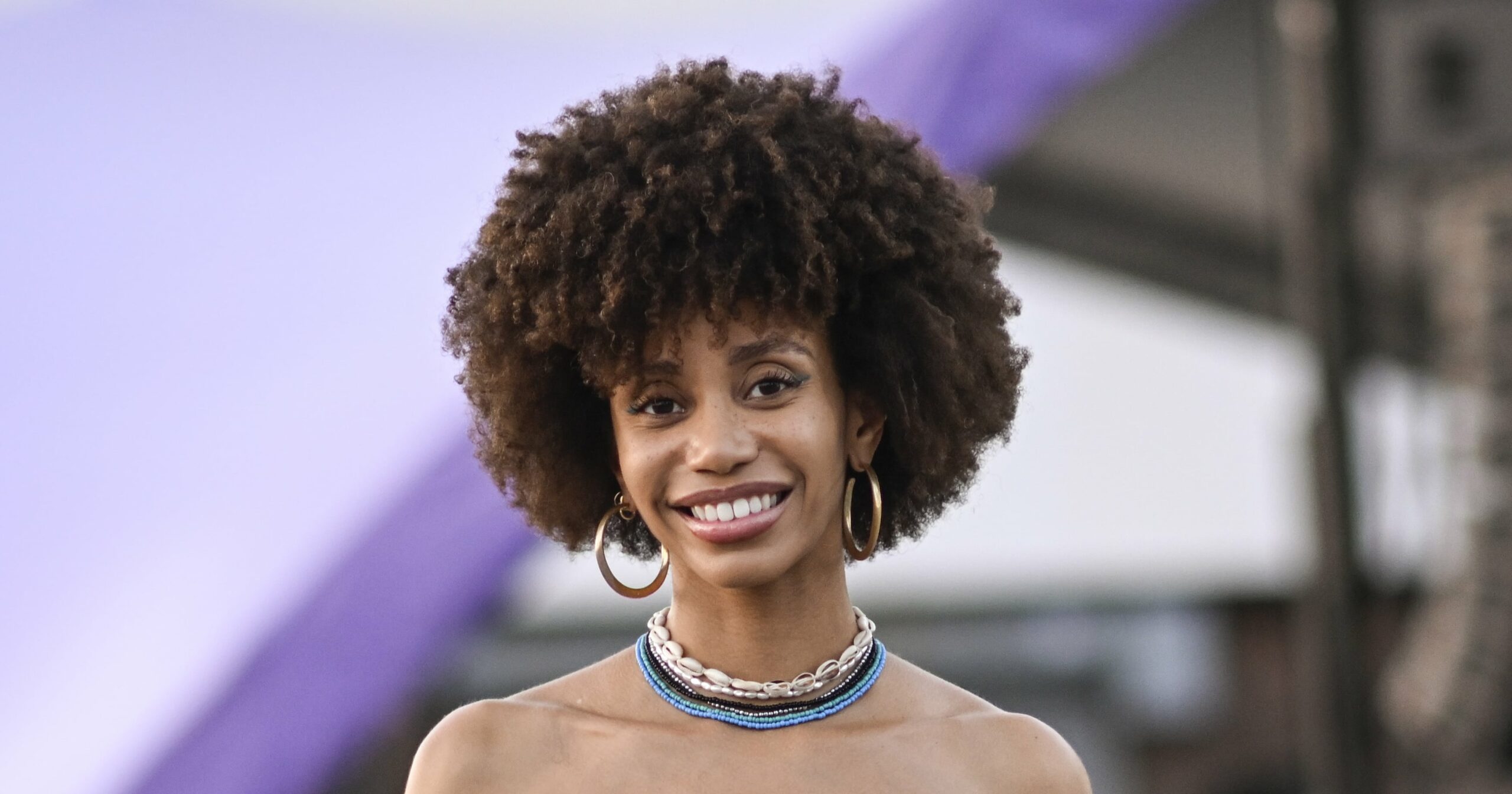TikTok’s lengthy sleep routines have inspired me to do better. I spend most nights mindlessly scrolling – watching creators walk through their carefully curated sleep rituals without ever indulging in my own. On social media, people share their favorite sleep products, from sleep supplements, to viral “sleepy girl mocktails.” That’s not to mention specific mindfulness practices and bedding set-ups to help them doze off faster and sleep more soundly. But are these elaborate sleep routines really necessary?
TikTok creator Kylie Day was one of the first to go mega-viral for her extensive sleep routine, racking up 1.2 million likes, and over eight million views. “I have the most insane sleep routine that all my friends love to make fun of, but I sleep like a baby every single night,” she says in her original video. Day goes on to explain that she sprays magnesium on the bottoms of her feet, sleeps with a silk pillowcase, wraps a weighted “NodPod” around her face and eyes, and uses mouth tape before bed – all in the pursuit of better sleep.
“I have had struggles in the past with my quality of sleep. I would constantly wake up throughout the night and never wake up feeling well rested. This is what motivated me to look for ways to enhance my sleep,” Day tells PS. “Since using my sleep routine consistently, I’ve noticed that I can sleep 6-8 hours at night and wake up feeling so rested and able to have stable energy levels all day, while before, I could sleep 12 hours and be tired all day long.”
Similarly, since starting her own sleep routine, TikTok creator Julia Iz has noticed a significant improvement in the quality of her sleep. “Ever since I can remember, I have had trouble sleeping, especially if I’m sleeping away from home,” Iz tells PS. “I am a sensitive sleeper so I’m very particular about my environment.” To help stay asleep, Iz does a nighttime meditation before bed, and wears eye masks and ear plugs to block out any light or sound.
Iz also limits exposure to blue light about an hour before bed (which can potentially suppress melatonin production and throw off your circadian rhythm, according to Harvard Medical School) and takes magnesium glycinate most nights. Since tracking her sleep with the Oura ring, Iz adds that her REM and deep sleep levels have increased. “As a result, I feel more energized throughout the day and my cortisol levels have balanced out.”
What started as a genuine interest in better sleep, however has since evolved into a deeper obsession on social media. Enter the more competitive “sleepmaxxing” trend – where people use all kinds of products and tools to maximize the total amount of sleep they get each night. TikTok’s sleepmaxxing and sleep routines might not be entirely realistic for everyone – mostly due to the amount of time, money, product, and sheer willpower required – but according to sleep experts, our FYP could still teach us a thing or two about building better sleep habits. Read on to see what experts think about these multistep, multiproduct sleep routines (and whether any viral sleep trend is really worth it).
Experts Featured in This Article:
Jade Wu, PhD, DBSM, PhD, DBSM, is a board-certified sleep psychologist and researcher who studies sleep disorders in those with chronic illness.
Chris Winter, MD, is a sleep specialist, neurologist, and the owner of Charlottesville Neurology and Sleep Medicine clinic.
Are TikTok Sleep Routines Legit?
When it comes to creating a solid sleep routine, Jade Wu, PhD, DBSM, and Chris Winter, MD, (both Mattress Firm sleep advisors), have some advice. “Falling asleep is less like turning off a switch and more like going down a ramp,” Dr. Wu says. “Your body needs a gradual wind down – including decreasing body temperature, slowing heart rate, relaxing muscles, quieting mental activity etc. – to prepare for good quality sleep. A good sleep routine can help with all of this.”
That said, don’t let social media get to you – you don’t necessarily need a million products to unwind. “It doesn’t have to be elaborate. In fact, too many specific steps done with too much perfectionism may be counterproductive,” Dr. Wu says. “We don’t want to send a message to our bodies that sleep is something tricky or daunting.” This is especially true of the sleepmaxxing trend, which creates heightened pressure to get as much sleep as possible. Along these lines, while some tools may prove helpful, not every sleep product is totally necessary. Here’s what the experts had to say about two of the most popular ones: magnesium supplements and mouth tape.
“Brains love magnesium, and the mineral is a common co-factor in many processes that generate healthy amounts of brain neurotransmitters,” Dr. Winter says. “Having your magnesium levels tested and supplementing can be a big step in a healthier sleep and health direction.” That said, it’s best to consult a healthcare provider before incorporating any new medications into your life. Mouth tape also comes with a bit of a warning from the experts. “Generally, we want to keep as many avenues for respiration open as possible, so to shut off one major source of breathing doesn’t seem wise,” Dr. Wu says. Dr. Winter adds that, while mouth tape may help with snoring and mild sleep apnea, the scientific data is still pretty scarce.
What Might Work Better
To keep your sleep routine simple, Dr. Winter says the most important things to think about are consistency, duration, and optimized timing. “We want a predictable sleep and wake time (particularly wake time), and we need the routine to provide the proper amount of sleep for each individual at that particular time of their life,” Dr. Winter says. “For better or for worse, great sleep habits are pretty boring – stuff you have probably heard before, and not likely to go viral.” While a dedicated sleep routine can make a difference, you can also work on sleep quality throughout the day. Here’s a few specific tips from our experts:
- Eat For Better Sleep: Your eating habits can contribute to healthier sleep patterns, with high-fiber fruits and vegetables, easily digestible carbohydrates, and foods with high levels of vitamin B (such as eggs, leafy greens, yogurt, and salmon) proving helpful for melatonin regulation and overall better sleep, per the National Sleep Foundation. Other foods to help you sleep include bananas, cherries, and dark chocolate.
- Cut Back on Alcohol: Limiting alcohol before bed can allow for deeper sleep, since you don’t have to worry about the sedative effects wearing off and disrupting your rest. This can also decrease your risk of sleep apnea, sleep walking, and vivid dreams or nightmares, according to the Cleveland Clinic.
- Take Time to Wind Down: Simple lifestyle changes like prioritizing stress relief or getting less screen time before bed can be a hugely beneficial part of your long-term sleep routine. What you do day-to-day might just prove to be more important than the 30-minute routine you do right before bed.
The Bottom Line
TikTok sleep routines can be a great place to draw inspiration, but getting better ZZZ’s doesn’t have to be complicated or competitive. If you’re looking to revamp your sleep habits make sure to run any new supplements by a healthcare professional and be wary of short-lived trends. To simplify all the sleep routine content, Dr. Wu recommends picking a few calming rituals you genuinely enjoy (including music, meditation, and dog-cuddling). You can try to do them every evening before bed and see how they work, “but don’t sweat it if sometimes you have to or want to do something different,” Dr. Wu says. “Think of this routine as a transition from ‘doing’ mode to ‘being’ mode.” If you find yourself unable to “maximize” your sleep one day, give yourself some grace and remember that – for a truly great sleep routine, maintaining a balanced lifestyle is key.
Chandler Plante (she/her) is an assistant health and fitness editor for PS. She has over four years of professional journalism experience, previously working as an editorial assistant for People magazine and contributing to Ladygunn, Millie, and Bustle Digital Group.




